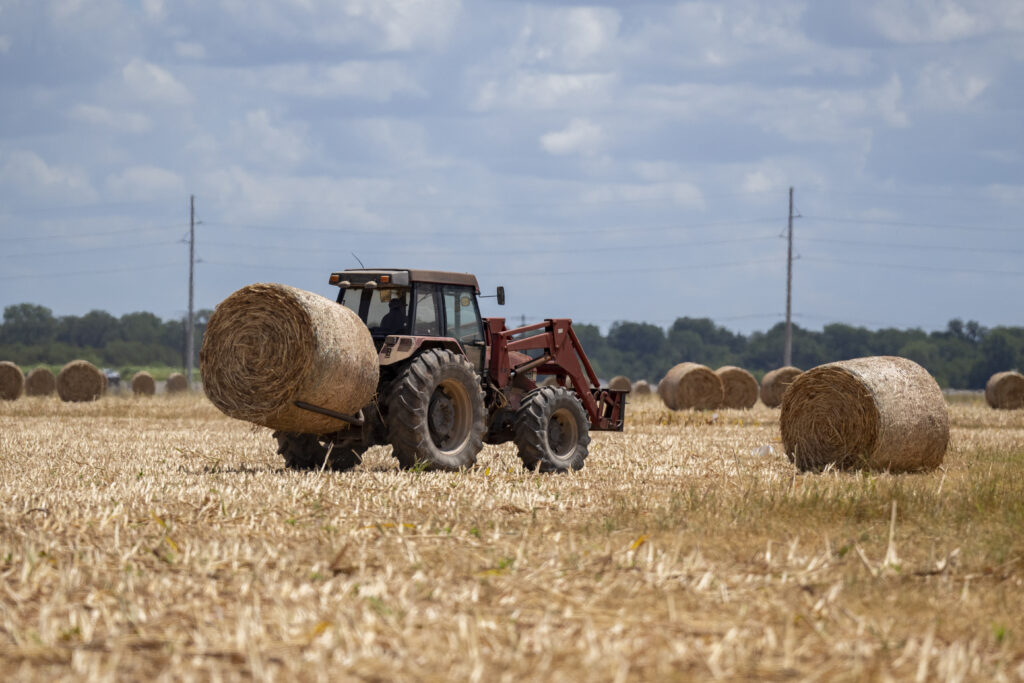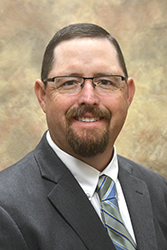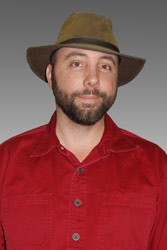Forages, which include both native (90-93 million acres of rangeland) and introduced (24-25 million acres) plants that provide nutrients for domestic animals and wildlife, contribute to resource conservation and sustainability of land areas in Texas. Forages provide about 70% of the nutrients consumed during the lifetime of livestock and are the foundation on which the Texas livestock industry is built. Forages are the only crop found in each of Texas’ 254 counties. Currently, Texas cash receipts are more than $22 billion for animals and animal products with about $11.5 billion attributed to beef cattle. In addition, forages contribute more than $710 million as hay, and they are a major component of the $8.9 billion economic impact on wildlife resources. Forages also enhance water quality, serve as sites for the disposal of agricultural and municipal wastes, are renewable sources of energy, provide food and habitat for wildlife, and are used to revegetate disturbed lands and public right-of-ways.
Forage species in Texas are as diverse as the soils and climates found across the state. Research is conducted at Amarillo, Beeville, College Station, Overton, Stephenville, Vernon, and Uvalde to address persistence, sustainability, and production in various ecosystems. The Texas A&M AgriLife Research forage research team includes expertise in plant genetics and breeding, forage physiology, management, soil-plant interactions, and forage-animal interface. Additionally, forage specialists with the Texas A&M AgriLife Extension Service conduct numerous demonstrations across the state to evaluate new forages and management practices at the producer level. The current Forage faculty in research and extension emphasizes basic and translational impact on soil-plant stewardship, forage utilization strategies, animal production, and economic growth for Texas producers as components of the overall Mission of the Department and Texas A&M AgriLife.

Research Interests
- Develop pasture-forage-cropping systems for water quality enhancement, plant and animal production, conservation, and erosion control.
- Develop forage cultivars for enhanced persistence and nutritive value via germplasm evaluations and plant breeding methods.
- Release of cool-season perennial grasses that are summer dormant so they survive in Texas and assessing these forages for persistence to compliment dual-use wheat.
- Forage Legume Beeding and Genetics: Develop new Forage Legume cultivars with improved persistence, pest resistance, and enhanced forage production.
- Forage Rye Breeding: Develop new annual ryegrass cultivars with improved adaptation to acid soils, pest resistance, and winter forage production.
- Develop environmentally compatible and ecologically sound nutrient management systems for animal waste disposal and fertilizer applications.
- Evaluation of the use of winter annual legumes, such as medics, clovers and vetches, for forage quality and wildlife seed source in drier regions of Texas. These legumes include winter annuals such as annual medics, clovers and vetches. Some of these legumes also provide good seed sources for game birds.
- Assess fertility and irrigation management of summer perennial and winter annual pastures.
- Quantify soil-forage-animal effects on bermudagrass pastures and nutrient cycling under long-term stocking.
- Access forage nutritive parameters, sustainability, and dry matter production under various stocking utilization strategies.
Faculty and Staff
Related Sites of Interest
- Aggie Clover
- Forages: They’re Good for Life!
- Texas A&M AgriLife Research & Extension Center – Overton
- Texas A&M Vascular Plant Image Library
- Texas AgriLife Research
- Variety Testing Information – Forages
- foragefax.tamu.edu
- Texas A&M AgriLife – Beeville Station
- Texas A&M AgriLife Research and Extension Center at Stephenville
- AgriLife Learn
- AgriLife Extension – Pasture and Forage
- Texas A&M AgriLife Extension Service Soil, Water and Forage Testing Laboratory
Learn More About Research Areas of Focus in Soil and Crop Sciences
In the realm of soil and crop sciences, research focuses on a myriad of critical areas that drive sustainable agricultural practices and global food security. Soil health and management take center stage, exploring ways to optimize soil fertility, structure, and nutrient cycling to enhance crop productivity. Genetic advancements in crop breeding and biotechnology are pursued to develop resilient varieties that withstand environmental stressors and ensure high yields. Precision agriculture, integrating technology and data analytics, aims to fine-tune farming practices, reducing resource waste and maximizing efficiency. The exploration of sustainable agroecosystems delves into the intricate relationships between crops, soil, and the environment, fostering environmentally friendly approaches. Such research not only informs farming practices but also contributes to vital policy discussions, shaping the future of agriculture in a rapidly changing world.







